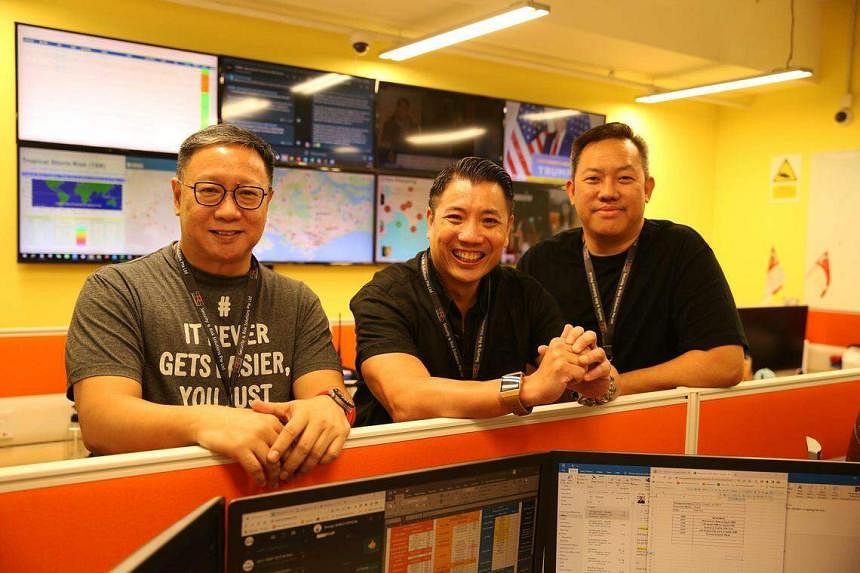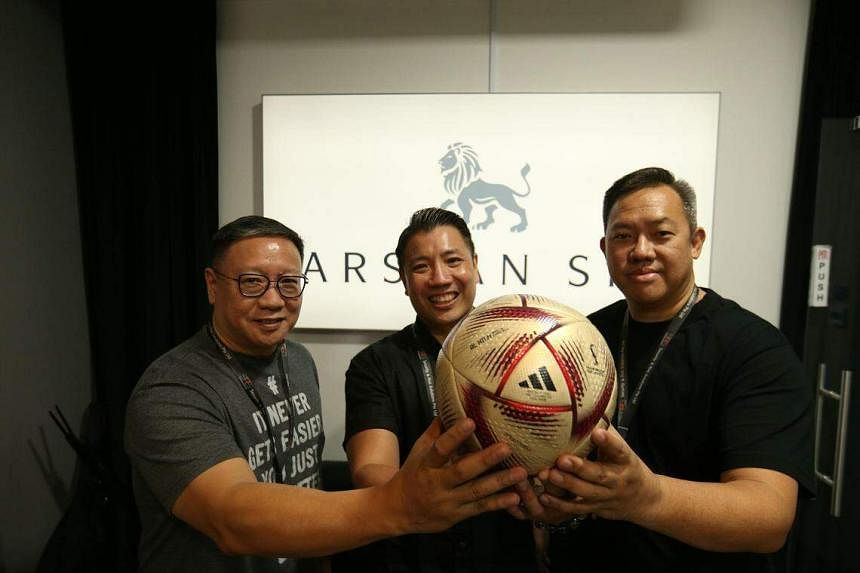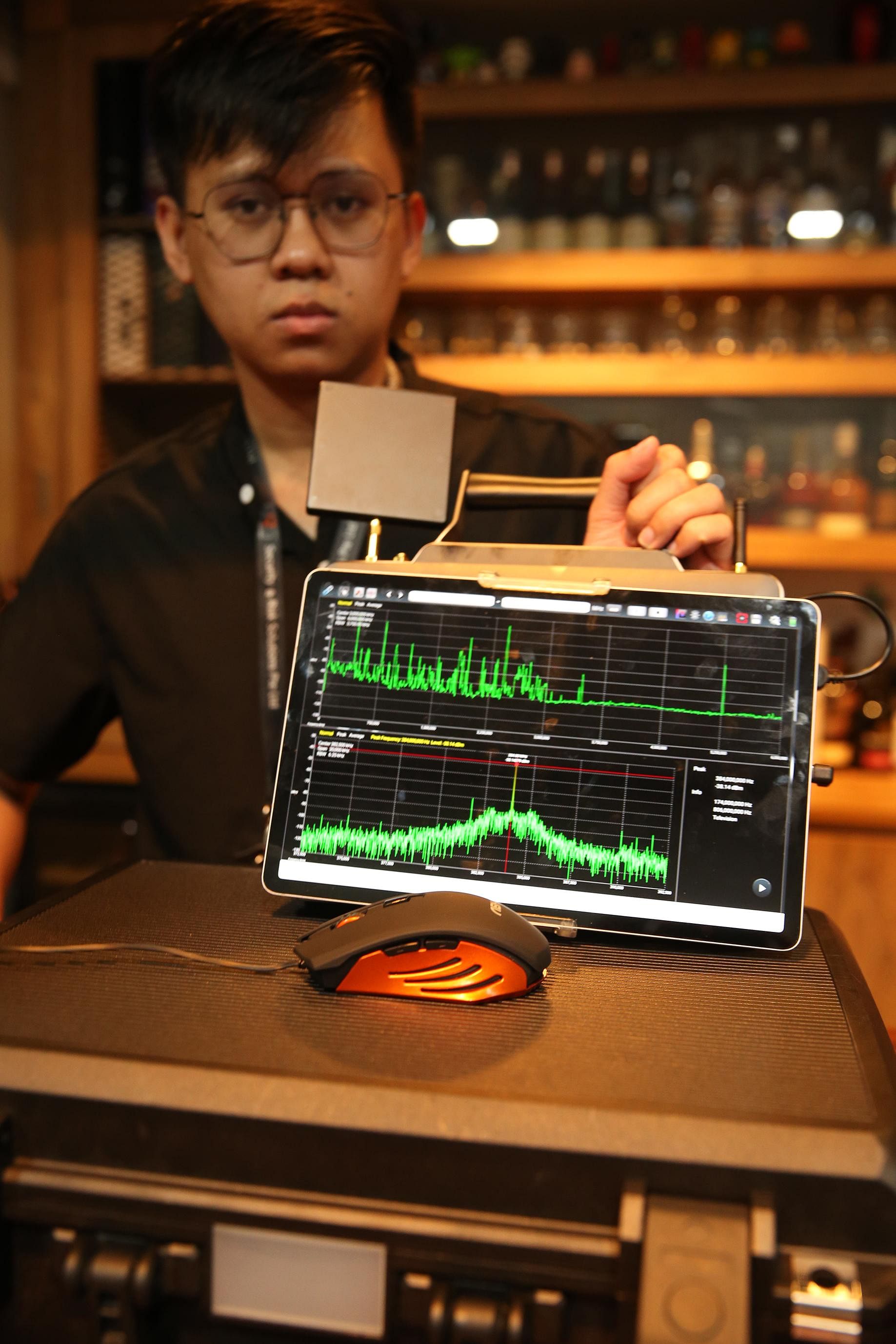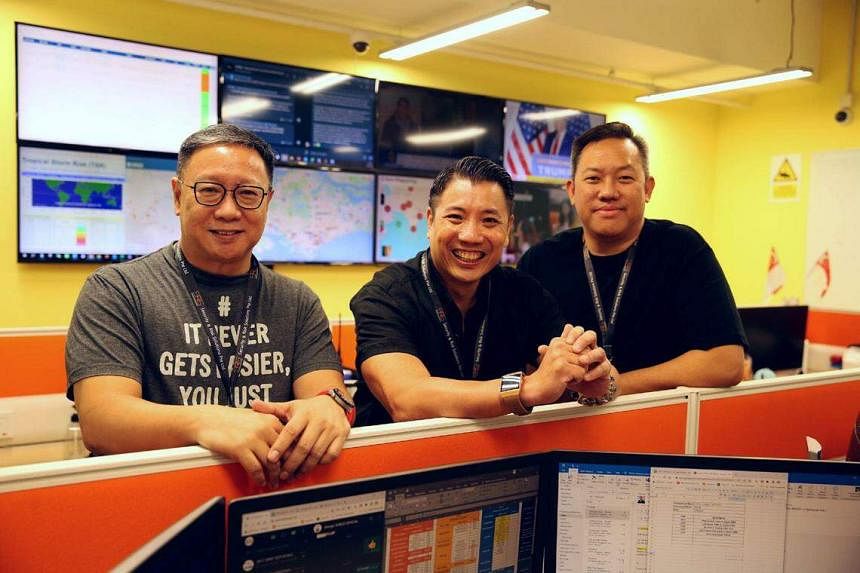- Joined
- Oct 30, 2014
- Messages
- 36,768
- Points
- 113

SINGAPORE – From hostage rescue to extracting corporate clients stuck in strife-torn countries, a security company in Singapore has found itself involved in some of the most dramatic events.
Like in 2021, when Singapore-based Security & Risk Solutions (SRS) received calls from 50 multinational companies that had more than 100 staff who needed to urgently secure safe accommodation after violence erupted in a neighbouring country.
The company, which was founded in 2006 by three former Singapore Police Force officers, had to later secure flights out of the country for some of the people as well.
SRS chief executive Amos Kng, 50, said Covid-19 restrictions made the operation a lot more tricky. Through local contacts, the firm remotely organised safe extractions for its clients.
“For over three months, my job was to stay in contact with people in multiple chat groups to ensure that things were going smoothly there. We had to ensure the safety and welfare of the people there.”
SRS deputy chief executive Paul Rachmadi said: “As former police officers, we’ve developed this kind of sixth sense or awareness.
“In a crisis, we always need to ensure that a person stays calm and takes control of the situation.”
In 2022, the company had the job of ensuring the safe transportation and security of the World Cup trophy, and provide security in Qatar for global brands, such as Adidas, which had set up marquees at different venues.
SRS was given a limited-edition Argentina v France final football by Fifa as a token of appreciation for its services.

The company’s chief operating officer, Mr Jon Lium, said: “We didn’t want to be branded as a run-of-the-mill security company. We didn’t want to be confined to just the Singapore market, and we didn’t want to be an internal subcontractor to foreign companies.”
Mr Lium, 53 and Mr Rachmadi, 52, both served at the Police Security Command, which provides security for Cabinet ministers and visiting foreign dignitaries.
Mr Kng served in the Singapore Police Force for 17 years and was involved in securing several key installations.
Their law enforcement experience has stood them in good stead in navigating emergencies for clients.
In 2013, SRS organised an extraction for a Singaporean client who was held hostage at a hotel in the Philippines.
The client had taken loans from loan sharks while gambling at a casino and was not able to repay after losing close to $50,000.
Two armed men – one with a pistol and the other with a knife – held him captive in his hotel room and took his passport away.
But the man had a second mobile phone, which he used in the bathroom to communicate with Mr Kng.
Mr Kng cautioned his client against speaking on the phone, saying: “It is better to communicate by texting and to buy time with the kidnappers by saying that somebody is arranging for the money to be paid.”
At the same time, Mr Kng alerted law enforcement and military contacts in the Philippines. They hatched a plan to free the hostage.
The staff in the hotel where the Singaporean was staying were informed of the impending raid by armed officers.
A knock on the room door a few days later, and the Singaporean was rescued without any shots being fired.
“They surrendered when they saw the rifles carried by the officers. It was a case of ‘my gun is bigger than yours’,” said Mr Lium, who declined to reveal what they charged the man.
The two men were arrested and the Singaporean was later escorted to the Singapore embassy in Manila.
Mr Rachmadi said the strength of SRS lies in the network of partners it maintains in more than 15 Asia-Pacific countries.
He added that the lessons imparted by a former officer from Yamam, an Israeli counter-terrorism unit, gave SRS a broader perspective when handling armed crises.
The company’s services are also employed in the corporate world, where business rivals can play dirty when it comes to getting their hands on confidential information or trade secrets.
Part of SRS’ services include debugging – or spotting hidden listening devices or video cameras.
Said Mr Rachmadi: “Proper debugging of a room doesn’t involve just waving a ‘magic wand’ and saying that the room is ‘clear’. It’s a long and thorough process which follows a certain protocol and a proper sweep of the room.”
At its office in Sims Close, SRS showed The Straits Times one of its debugging equipment, the Alpha-P. It is able to detect a bug’s active frequencies and its location if the bug is turned on remotely.
Mr Kng said: “To ensure that no information is leaked, we sweep boardrooms and offices where meetings are being held.
“We have found two bugs – one in a hotel room in Singapore and another in a hotel room belonging to a news anchor during the 2019 meeting in Hanoi, Vietnam, between then United States President Donald Trump and North Korean leader Kim Jong Un.”
In 2021, SRS was engaged to handle a Singapore “fraud case involving millions of dollars”.

The security company had to execute an Anton Piller order, which is a court order that allows for the search and seizure of relevant materials and documents from a defendant’s premises.
Mr Rachmadi said: “We were involved in what is believed to be the biggest Anton Piller raid in Singapore... everybody involved in the raid had to have their names in the High Court order.”
It was a challenge to coordinate with 50 operatives and plaintiff’s lawyers to be at seven locations simultaneously.
Prior to the court order being executed, SRS operatives, who come from military and police backgrounds, conducted physical surveillance on their assigned subjects.
SRS operatives tailed their subjects to establish their movements as they needed to establish where they would be at any given time.
When the order was given to commence the raids, the defendants were caught off guard.
SRS declined to provide specifics of their cases, saying most of their clients demand confidentiality.
But Mr Rachmadi said: “When push comes to shove in a crisis, we will be the guys on the ground to support your operations.“
https://www.straitstimes.com/singap...ops-involved-in-high-risk-operations-overseas


